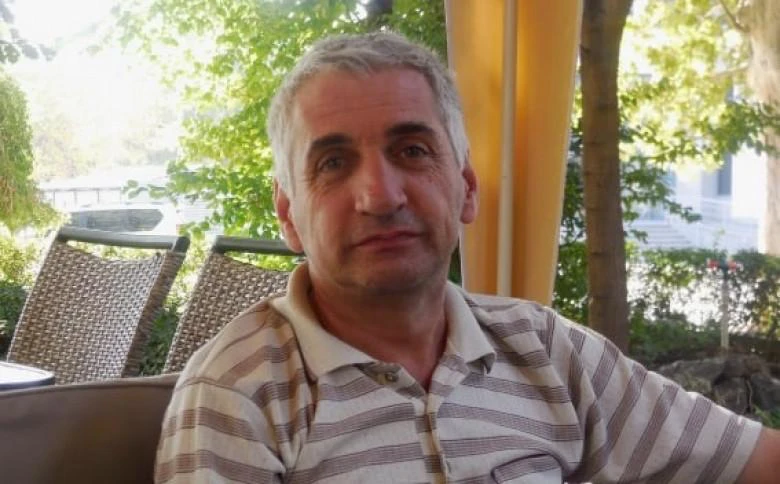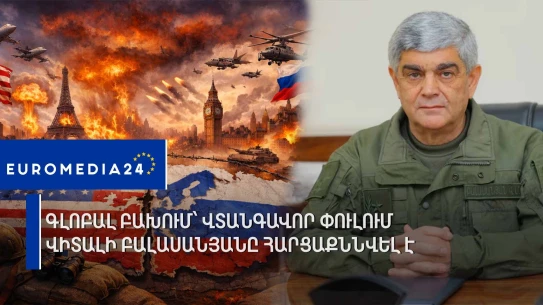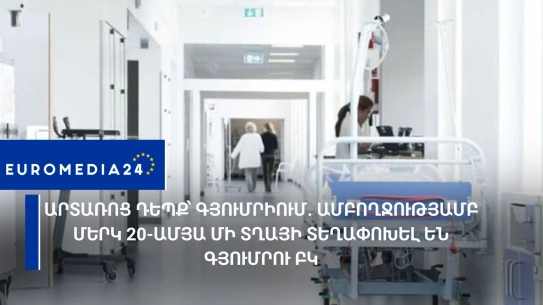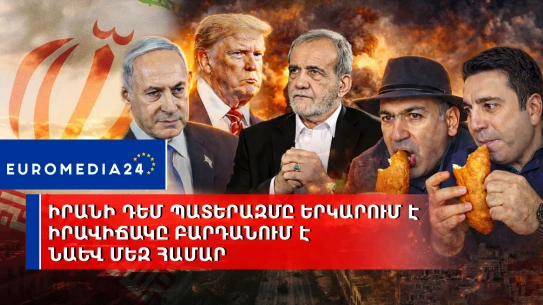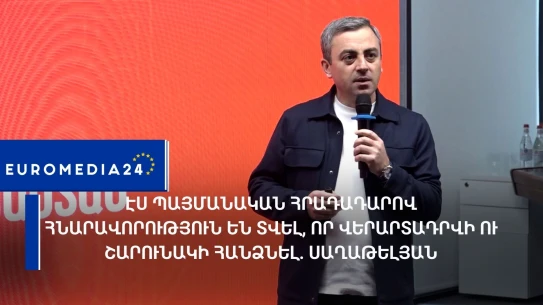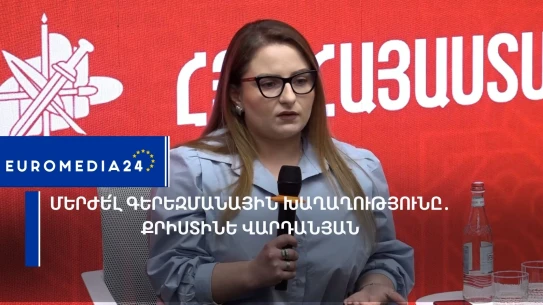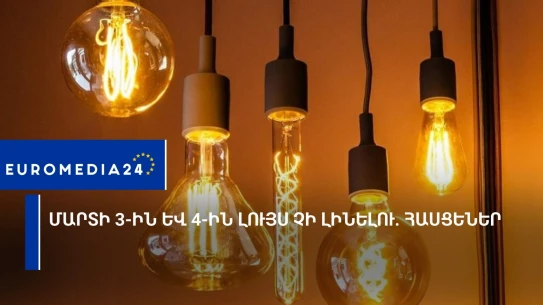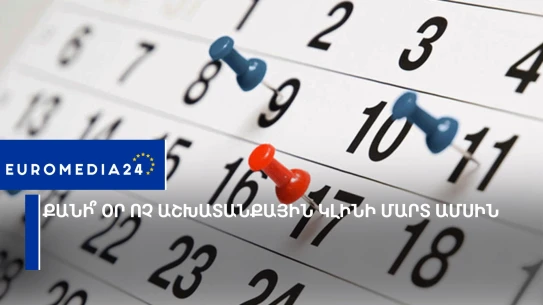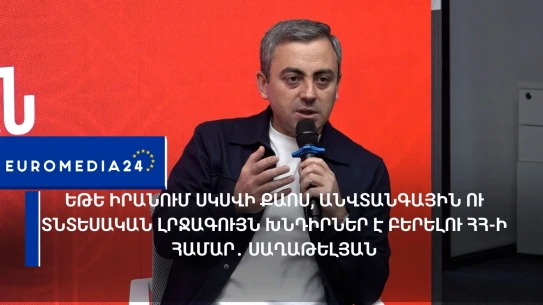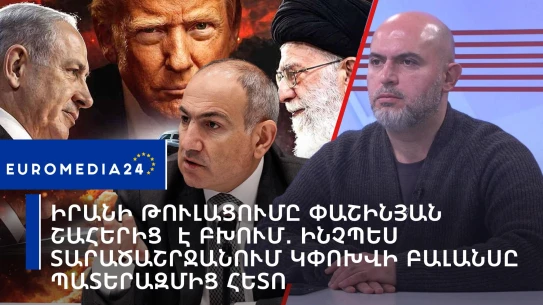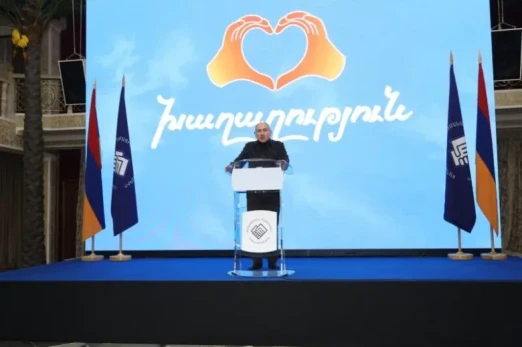"Fact" daily writes:
A few days ago, a meeting of the foreign ministers of Armenia, Iran, Russia, Azerbaijan and Turkey took place in Turkey in the "3+3" format. Georgia refused to participate in the meeting. There are official announcements, official records of meetings. And were there thoughts voiced in the footnotes? Political analyst Ruben Margaryan says, in his opinion, there were no significant changes as a result of this meeting. "All sides have remained in their positions. The Armenian side says that they agreed with the Turkish side to analyze the technical criteria for the opening of the GyumriKars railway. This is an arrangement for which it is not worth meeting in the "3+3" format. For two years and more, there has been an agreement that the Prophet's checkpoint should operate for people with diplomatic passports, etc. But as agreed, the question remains, nothing moves. The same could be the case with this arrangement. Specialists can come from both sides, make calculations, but the process will stop, there will be no significant change. The match was taking place in Turkey, it increases his role a bit. Representatives of five countries met in the regional country, talked, discussed, adopted a joint declaration, in which, by the way, there are also general provisions, there is no significant change. The parties were called to speed up the signing of the "Peace Treaty", which is also heard regularly," Margaryan said in an interview with "Past". Turkish Foreign Minister Hakan Fidan expressed his belief that the countries of the South Caucasus know the problems of the region better than all others and can solve them. "These are just exhibition meetings, so far that platform has not decided anything serious. Moreover, it can be seen from the behavior of Georgia. The West accuses the Georgian authorities of adopting laws that are also adopted in Russia. The West accuses Georgia of distancing itself from the European Union, the United States, and seems to want to improve relations with Russia, but Georgia is not participating in the "3+3" meeting because of Russia's differences over Abkhazia and Ossetia. It follows from the behavior of the Georgian authorities that in reality they are trying to conduct a policy that is Georgian-centric, which is beneficial to them. They have clearly defined their red lines. And wherever Armenia is called, it goes there and there is no particular result," our interlocutor notes. In this period, Armenia pursues a policy of "being good with everyone", contrary to that, it does not seem to have stable, partnership relations with any of the parties. "As a result of this, the authorities of Armenia are not taken seriously, but it is beneficial for everyone to have such a government in Armenia. Any power that has any interest in Armenia at some point will know that it is possible to put pressure on Armenia and achieve the position it wants, be it the West, Russia, Azerbaijan and Turkey or Iran. In a way, it helps to have a neighboring country where you can always find some leverage to influence and strengthen your position. This is the difference between the foreign policies of Armenia and Georgia. Georgia is more dry in the sense that where its interests do not coincide, it clearly announces it. And Armenia does the opposite: it tries to satisfy everyone at its own expense. Whoever wants from Armenia, Yerevan is ready to provide for the sake of peace, so that everyone will be good to him and he will live peacefully. Georgia is ready to say no to both the West and Russia for the sake of its interests, and Armenia is ready to say yes to everyone," the political analyst adds. The possible launch of the "Zangezur Corridor" and the involvement of Armenia's southern neighbor in the war. These are the two important questions that concern us immediately. "Not only Armenia, but many countries are carefully following what is happening for various reasons, avoiding any specific steps, based on the fact that there is a certain unpredictability. Everyone is waiting to see which way the tide will turn, which way the politics will develop. In the meantime, the Armenian authorities are trying to extract something quickly in the form of a "Peace Treaty" so that they have something to present and feel a little more secure. Although they understand that there is no insurance in it, but that is the course. Azerbaijan continues to delay because it does not rule out some more concessions from Armenia. Armenia also knows that the "Peace Treaty" is not a guarantee of anything, but it wants to get at least something, but they don't give it to it either, they say wait, let's see, he emphasizes. It is extremely obvious that Azerbaijan does not want to sign any agreement with Armenia. "Everyone will do the same with these authorities. When we say that Nicole should leave, we take into account that they will start talking to the new player anew, there will be a different attitude towards him. There will be a change of power, a new person will appear, everyone - Russia, the European Union, the USA, Azerbaijan - will begin to study that person, what kind of policy he is pursuing, what can be offered, what can be received from him or, conversely, not received, etc. In our situation, it is so obvious what everyone should do. is a very predictable person in Armenia. When necessary, Russia will press, when necessary, the United States will extract something. Azerbaijan also thinks that if there is a suitable opportunity, we will get something. Doesn't Azerbaijan understand that now Nikol Pashinyan cannot make constitutional changes? He would love to do that, but he knows they won't pass as of today, and he doesn't. It is also a time-consuming process. Azerbaijan also "caught" that point and continues to drag out the process. They will wait until they get some new concession from Yerevan. Maybe at some point they will give up the demand for constitutional changes, but it will mean that they want to get something else. Demands from Armenia are being formulated in several directions, now there is also talk of financial compensation. After 2020, Azerbaijan conducts this policy. He did not say that Artsakh will be emptied, but he went step by step towards that goal. After 2020, he didn't say that he wanted territories from Tavush, but he formulated that demand step by step and went to it step by step. They also understand that they cannot make all the demands at once, and they will be satisfied at once. It's a political game, they play it in different ways, one plays by setting new demands, the other dreams of prolonging the process, handing over less, tearing something on paper, etc., Ruben Margaryan concludes.
Lusine Arakelyan
















